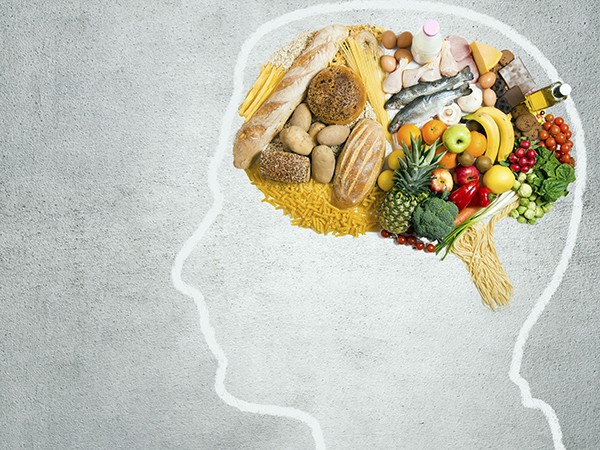
Ever wonder why some days your brain feels like a sponge, soaking up information, while other days it feels like a sieve? Your diet could be the key. The foods you eat can significantly impact brain function, including memory.
Our brains need specific nutrients to function at their best. Omega-3 fatty acids, antioxidants, vitamins, and minerals are all essential. These nutrients help protect the brain, promote new neuron growth, and improve cognitive functions.
Spinach, kale, and other leafy greens are packed with brain-boosting nutrients like vitamin K, lutein, folate, and beta carotene. These compounds help slow cognitive decline.
Salmon, trout, and sardines are rich in omega-3 fatty acids, which are crucial for brain health. These healthy fats help build cell membranes in the brain and promote new neural connections.
Berries, especially blueberries, are high in antioxidants. Antioxidants help reduce inflammation and oxidative stress in the brain, enhancing cognitive functions and memory.
Almonds, walnuts, and sunflower seeds are excellent sources of vitamin E, an antioxidant that helps protect brain cells from oxidative damage. Walnuts also contain high levels of DHA, a type of omega-3 fatty acid.
Whole grains like oats, barley, and quinoa provide a steady supply of glucose, the brain’s primary energy source. They also contain fiber and B vitamins, which support overall brain health.
Avocados are loaded with healthy fats that enhance blood flow, promoting better brain function. They also contain folate, which helps reduce homocysteine levels linked to cognitive decline.
Dark chocolate with high cocoa content is rich in flavonoids, caffeine, and antioxidants. These components boost memory, focus, and overall cognitive function.
Water is vital for brain function. Dehydration can impair attention and short-term memory. Aim to drink at least 8 glasses of water a day.
Physical activity increases blood flow to the brain and promotes the growth of new brain cells. Aim for at least 30 minutes of moderate exercise most days of the week.
Sleep is crucial for memory consolidation. Aim for 7-9 hours of quality sleep each night to keep your memory sharp.
Engage in activities that challenge your brain, such as puzzles, reading, or learning a new skill. Mental exercises can help maintain and even improve brain function.
Start your day with a bowl of oatmeal topped with fresh berries and a sprinkle of nuts. Pair it with a glass of water or green tea.
A salad made with leafy greens, avocado, and grilled salmon is a perfect brain-boosting lunch. Add a handful of sunflower seeds for an extra crunch.
Consider a serving of quinoa paired with steamed broccoli and a portion of fatty fish like trout. Add a side of dark chocolate for dessert.
Keep brain-boosting snacks on hand, such as a handful of walnuts, a small portion of dark chocolate, or fresh berries.
High sugar intake can lead to cognitive decline and poor memory. Limit consumption of sugary beverages and snacks.
Found in many processed foods, trans fats can impair memory and cognitive function. Avoid foods like margarine, store-bought cookies, and cakes.
White bread, white rice, and pasta can spike blood sugar levels, leading to memory impairment. Opt for whole grain alternatives instead.
If you’re not a fan of fish, consider taking fish oil supplements. They provide a good dose of omega-3 fatty acids.
Vitamin E can help protect your brain from oxidative stress. Consult with a healthcare provider before starting any new supplements.
This herbal supplement is believed to improve blood flow to the brain and enhance cognitive function. However, more research is needed to confirm its effectiveness.
Chronic stress can damage brain cells and impair memory. Practice stress-reducing techniques such as meditation, yoga, or deep breathing exercises.
Social interaction stimulates the brain. Engaging in conversations and activities with friends and family can help maintain cognitive functions.
Continuously challenge your brain with new and stimulating activities. Learning a new language, playing an instrument, or even trying new hobbies can keep your brain sharp.
Regular health check-ups can help detect and manage conditions that may affect brain health, such as high blood pressure, diabetes, or cholesterol.
Maintaining a healthy weight through a balanced diet and regular exercise can reduce the risk of cognitive decline.
Smoking and excessive alcohol consumption can harm your brain. Avoid smoking and limit alcohol to promote better brain health.
By incorporating these brain-boosting foods and healthy habits into your daily routine, you can support your memory and overall cognitive function. Remember, a sharp memory starts with a healthy diet and lifestyle. Make small changes today for a sharper mind tomorrow.
Rising Milk Prices in India: Know the Causes Behind the Hikes
What kind of diet should a cancer patient follow after chemotherapy, know what the experts say